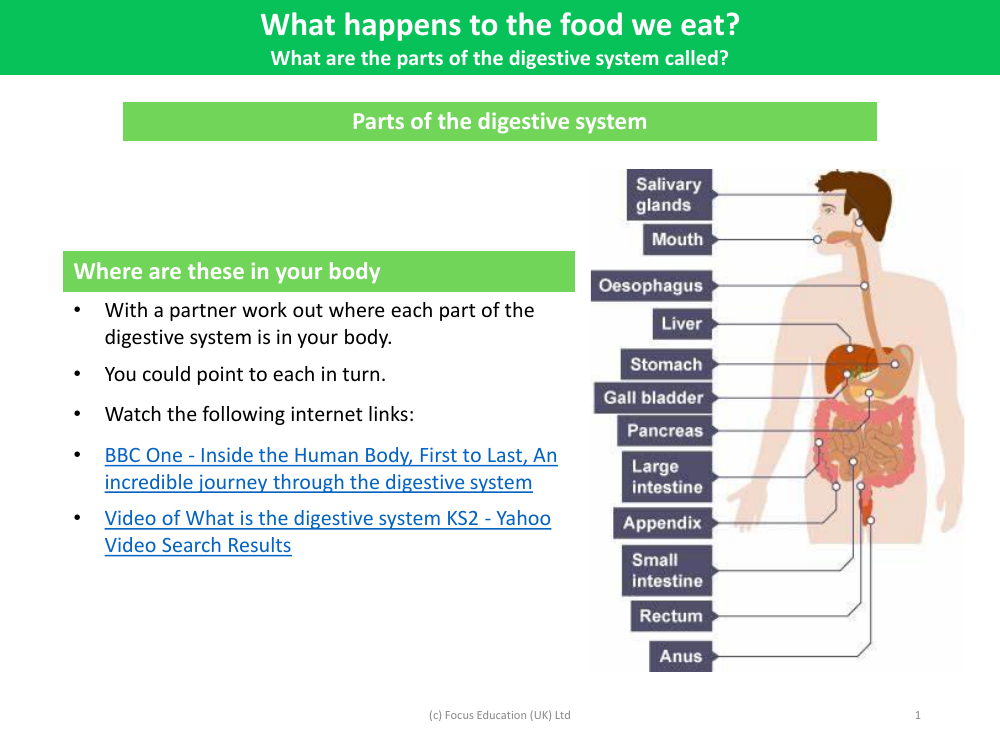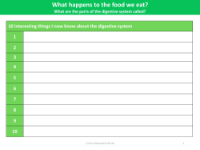What is the digestive system? - Info sheet

Science Resource Description
The digestive system is a vital part of our body, responsible for the breakdown of food into nutrients that can be absorbed and utilized for energy, growth, and cell repair. It starts when we put food into our mouths, where it is chewed by our teeth and mixed with saliva to begin the digestion process. This mixture is then swallowed and travels through the oesophagus to reach the stomach. Here, the stomach acid and enzymes work to further break down the food, ensuring any harmful bacteria are neutralized. This intricate process is essential because without digestion, the food we eat would not be converted into the necessary form for our body to absorb and would simply pass through our system as waste.
After the initial digestion in the stomach, the food moves into the intestines, which are divided into two parts: the small intestine and the large intestine. The small intestine continues the digestive process by breaking down the food even more and absorbing the vital nutrients into the bloodstream. Following this, the large intestine has the role of absorbing water back into the bloodstream and compacting the undigested food. This waste is then stored in the rectum until it is ready to be expelled from the body during bowel movements. Understanding the different parts of the digestive system and their functions is crucial for appreciating how our bodies process the food we consume.




